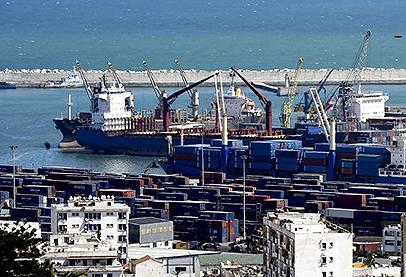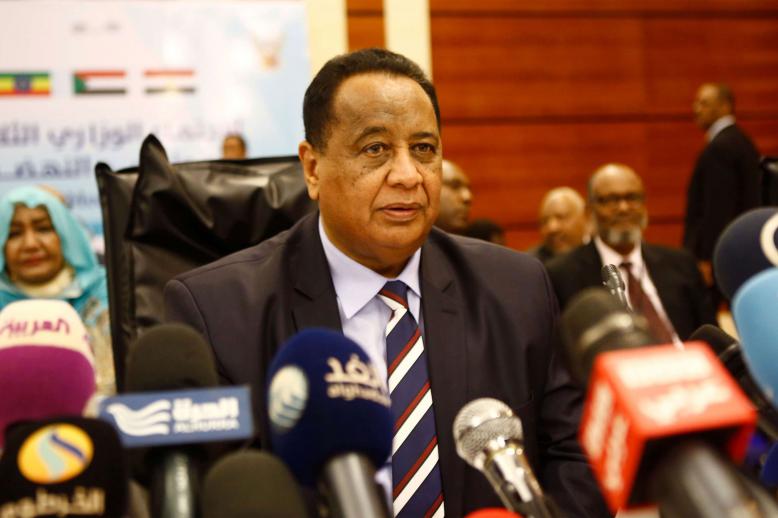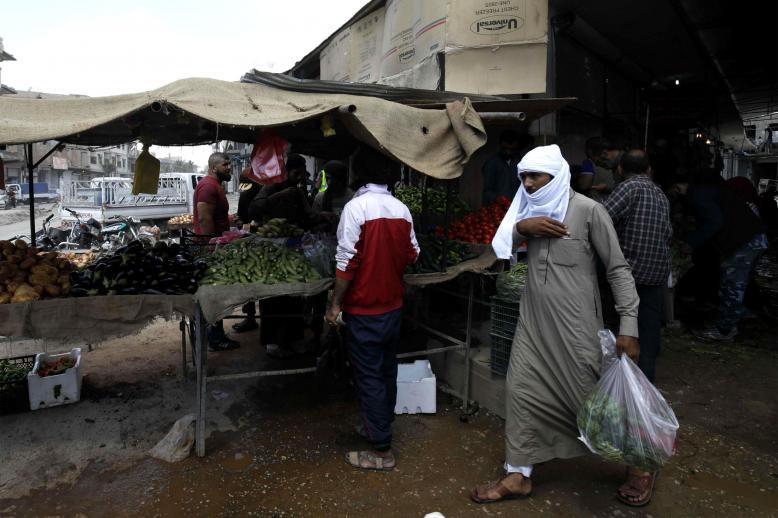Algeria draws Europe’s ire by cutting imports, boosting trade with China

Algeria has continued to cut imports but stepped up trade with China, angering the North African country’s main trade partner, the European Union.
“Algeria is encouraging trade with China,” said EU Commissioner for Trade Cecilia Malmstrom at a recent parliamentary hearing. “We must find solutions to this issue. Otherwise, we will resort to the clauses of the settlement of disputes.”
“We are exchanging letters with the Algerian authorities over the issue and we are involved in ongoing discussions with them,” she added.
Spanish Trade Minister Maria Luisa Poncela had raised the issue of imports with Algerian officials during Spanish Prime Minister Mariano Rajoy’s visit to Algiers in early April.
“Spain does not see its trade deficit with Algeria as a problem,” Poncela said. “It sees the problem when Algeria’s import cuts have an impact on our exports to Algeria.”
Algerian Prime Minister Ahmed Ouyahia said he understood the Spanish and EU concerns and that the trade positions were temporary.
“We understand that the import cuts affect our European partners’ exports and we count on their understanding,” Ouyahia said.
Algeria, which introduced import restrictions in 2016 to preserve foreign currency reserves and protect domestic industries, this year expanded its list of banned imports to include 851 products. Among the products were meat, cheese, vegetables, cell phones and household appliances.
In 2016, the value of imports to Algeria fell $3 billion compared to the previous year to $46.7 billion. Imports are expected to shrink to $30 billion this year, official figures and government estimates predicted.
China has emerged as Algeria’s main import market, sending $8.3 billion worth of goods to the North African country in 2017. That outranked Algeria’s trade with traditional partners in Europe. France saw its sales to Algeria drop 10% to $4.3 billion in 2017, while Italian and Spanish exports to Algeria fell 19.2% and 12.3%, respectively. South Korean exports jumped 53% to $1.7 billion.
Algeria’s trade figures for January showed China as the country’s leading exporter, followed by France, Italy and Spain.
Since the overthrow of dictator Muammar Qaddafi in neighbouring Libya, Algeria has stepped up trade, military and intelligence cooperation with China and Russia.
Algeria has been party to a trade agreement with the European Union since 2005 but Algerian officials are unhappy with what they say are “unbalanced terms.” They say the accord has opened the Algerian market to EU imports but hurt local farming and manufacturing sectors.
Mustapha Mekideche, Algerian deputy chairman of the government-appointed Social and Economic National Council, slammed the European Union’s “contradictory” response to the country’s import cuts.
“I do not understand this kind of exaggerated European reaction,” Mekideche said, adding that the trade agreement only works if it helps improve the Algerian economy.
“Since 2014, Algeria has been promoting a new model of economic development that aims at expanding the role of the private sector and developing further human resources and this demands that our partners accept a role in the co-development that also benefits their enterprises,” he said.
“Our duty is to encourage the industrial development as part of diversified economy and lay the ground for a revised trade association accord with the European Union.”
“We are in a process of industrial development that the European Union must encourage and help instead of attempting to derail it,” said Mekideche, whose council’s views reflect the government’s positions on economic issues.
In a rare joint statement by the General Union of Algerian Workers (UGTA), Algeria’s main trade union, and the leading employers’ group Forum of Entrepreneurs (FCE), the two organisations assailed critics of Algeria’s import cuts.
“The UGTA and FCE express their worries following the repeated statements by senior EU officials about the measures taken by Algeria in the face of its important current account and budget deficits that threaten its economic and financial sovereignty,” the statement said.
“It is obvious that the measures of import cuts do not call into question the willingness of Algeria to consolidate economic cooperation with its strategic partners including the European Union.”
Algerian experts said that, while protective measures like import cuts would ease short-term financial pains, they would run against the country’s goals of diversifying the economy in the long run.
“There is no meaningful creation of economic and social wealth or significant economic development if competition and free market rules are stifled and suppressed,” said Algerian economist Ahmed Lateb. “Measures such as import cuts cause adverse effects like spreading corruption, distorting market rules and free competition.
“We can always protect some economic sectors and businesses by raising customs duties. For such measures to be successful, they must be accompanied by a plan to develop and foster the competitiveness of such industries and closely watch the price trends to prevent the creation of monopolies and price abuses.”
Lamine Ghanmi is a veteran Reuters journalist. He has covered North Africa for decades and is based in Tunis.
This article was originally published in The Arab Weekly.




